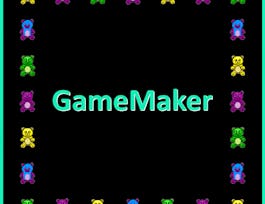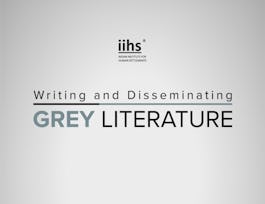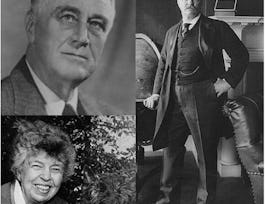Intended for both newcomers who are curious about video games and experienced gamers who want to reflect on their passion, this course will explore what happens to stories, paintings, and films when they become the basis of massively multiplayer online games. The Lord of the Rings trilogy—the novels, films, and video game—are our central example of how “remediation” transforms familiar stories as they move across media.


Online Games: Literature, New Media, and Narrative
Taught in English
Some content may not be translated
20,650 already enrolled
(181 reviews)
Details to know

Add to your LinkedIn profile
12 quizzes
See how employees at top companies are mastering in-demand skills


Earn a career certificate
Add this credential to your LinkedIn profile, resume, or CV
Share it on social media and in your performance review

There are 6 modules in this course
The course opens with a brief look at gaming culture and history, then introduces the chief game we will study, Turbine's "The Lord of the Rings Online." We then look at some key concepts in game theory such as remediation and Jesper Juul's treatment of rules and game design from his book "Half-Real: Video Games between Real Rules and Fictional Worlds." We end by considering games as journeys using Constantine Cavafy's poem "Ithaca."For details about this week's Readings, go to the Syllabus page in your Resources tab. ***For details about this week's Readings, go to the Syllabus page in your Resources tab.
What's included
9 videos1 reading2 quizzes
After an overview of storytelling modes, we turn to Tolkien and his work. We then examine the role of quests in games and literature. Finally, we introduce romance and lyric literature using Robert Browning's poem "Childe Roland to the Dark Tower Came." ***For details about this week's Readings, go to the Syllabus page in your Resources tab.
What's included
10 videos2 quizzes1 peer review
This week we journey into the Mines of Moria, comparing a scene in Tolkien's novel, Peter Jackson's film, and "The Lord of the Rings Online." Then it's back to romance literature to delve into the intricacies of allegory, plot, theme, and character. The week closes with a look at John Keats' haunting ballad, "La Belle Dame sans Merci." ***For details about this week's Readings, go to the Syllabus page in your Resources tab.
What's included
13 videos2 quizzes
Week 4's initial focus is our natural concepts of space and time, and how these dimensions inform the "storyworld" of a narrative. We then examine how directors, authors, and video game developers use these innate frameworks to tell stories, invoking Seymour Chapman's book "Film and Discourse: Narrative Structure in Fiction and Film." Close attention is paid to the mechanics of point of view, and how its use allows artists to connect with audiences. ***For details about this week's Readings, go to the Syllabus page in your Resources tab.
What's included
10 videos2 quizzes1 peer review
Hold on tight as we plunge into a discussion of Edmund Spenser's "The Faerie Queene," one of the greatest romance poems in English. You will see for yourself how deep the vein of romance is when you read this story of knights, castles, an evil seductress, and an indomitable heroine. Then watch how a group of students remediated the same story in a video game they created: "Faerie Queene Online." ***For details about this week's Readings, go to the Syllabus page in your Resources tab.
What's included
7 videos2 quizzes
Since Aristotle, the one constant in the study of narrative has been the analysis of beginnings, middles, and ends. As is appropriate for our last week, we spend much of our time examining how Tolkien takes leave of his readers at the end of "The Lord of the Rings" trilogy. The final stage of MMOs--when your character has maxed out and completed all the quests--has always presented challenges to game makers. Although LOTRO continues to take us on our journey toward Mordor, it cannot escape the challenge of creating end-game material for advanced players. We look at two attempts to include advanced players in the events of Western Rohan and Helm's Deep. Finally, we ponder what comes after the end, as we read Alfred, Lord Tennyson's poem, "Ulysses." ***For details about this week's Readings, go to the Syllabus page in your Resources tab.
What's included
9 videos2 quizzes1 peer review
Instructor

Offered by
Recommended if you're interested in Music and Art

University of Colorado System

Indian Institute for Human Settlements

Universiteit Leiden
Why people choose Coursera for their career




Learner reviews
Showing 3 of 181
181 reviews
- 5 stars
78.57%
- 4 stars
13.73%
- 3 stars
3.84%
- 2 stars
1.64%
- 1 star
2.19%

Open new doors with Coursera Plus
Unlimited access to 7,000+ world-class courses, hands-on projects, and job-ready certificate programs - all included in your subscription
Advance your career with an online degree
Earn a degree from world-class universities - 100% online
Join over 3,400 global companies that choose Coursera for Business
Upskill your employees to excel in the digital economy
Frequently asked questions
Access to lectures and assignments depends on your type of enrollment. If you take a course in audit mode, you will be able to see most course materials for free. To access graded assignments and to earn a Certificate, you will need to purchase the Certificate experience, during or after your audit. If you don't see the audit option:
The course may not offer an audit option. You can try a Free Trial instead, or apply for Financial Aid.
The course may offer 'Full Course, No Certificate' instead. This option lets you see all course materials, submit required assessments, and get a final grade. This also means that you will not be able to purchase a Certificate experience.
When you purchase a Certificate you get access to all course materials, including graded assignments. Upon completing the course, your electronic Certificate will be added to your Accomplishments page - from there, you can print your Certificate or add it to your LinkedIn profile. If you only want to read and view the course content, you can audit the course for free.
You will be eligible for a full refund until two weeks after your payment date, or (for courses that have just launched) until two weeks after the first session of the course begins, whichever is later. You cannot receive a refund once you’ve earned a Course Certificate, even if you complete the course within the two-week refund period. See our full refund policy.



